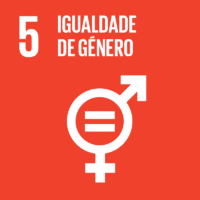Although many girls serenely navigate the transition to adulthood, many are not provided adequate support and opportunities to achieve their fullest potential. They live in a condition of exclusion because of their migrant background, because belonging to a disadvantaged family or for individual fragility and psychological patterns – and often for these factors combined. Their difficult socio-economic condition makes them ill-equipped to deal with the pressures around them, which in turn make them more likely to suffer from low-esteem, inactive lifestyles, bullying or to experience lower probabilities to attend a school suited to their attitudes. Gender bias often exacerbate their already difficult situations as they perpetuate stereotypes about acceptability of behaviours, interests, and roles for men and women. Within the extensive scientific literature on the multiple dimensions of social exclusion, little attention is paid to the “femaleadolescent” binomial aspects of such processes. At EU level there remains a need to create more, dedicated space for single-sex work with young women, especially those experiencing marginalization. Most projects focus on dealing with perceived problematic behaviour and educational deficiencies of young boys, while the remaining limited programming with girls emerges around their perceived potential victimhood, particularly those of early pregnancy, precocious sexuality and low self-esteem. Instead, little interest is given, within generic youth services, to actions focusing on empowerment,
exploring gender equity, or interrogating heteronormative gender discourses. In this context, there is also an emerging socio-economic issue that should not be underestimated: the so called "gender digital divide", which is often based on the
roles that provide the social expectations and shape the male or female use of technology. In already disadvantaged contexts, affordability, lack of education, as well as inherent prejudices and socio-cultural norms further limit girls' ability
to benefit from the opportunities offered by digital transformation. Indeed, such disadvantage has been exacerbated by social distancing measures and the disruption of study, work, leisure environments and rhythms caused by the COVID-19 pandemic over the past year. Within youth centres, and in tutelage and prevention services, gender-specific initiatives are in many cases overshadowed, if not completely ignored, often as a result of poor funding or absent operational guidelines.
Youth workers in particular usually lack up-to-date knowledge and methodologies to deal with specifically “girl issues”, but also to engage in deeper discourses exploring gender equity, autonomy and relationship, sexuality, violence against women, community, culture and identity. Given the complex environment in which the beneficiaries are embedded (usually multicultural or dotted with linguistic barriers), but also given the complexity of the personal experiences of the girls themselves, youth workers should be equipped with proper pedagogical support and educational tools, able to attract their attention, instil confidence, at the same time making them reflect with high motivation. The challenges of youth disadvantage, of the girls who are growing up in our contemporary society, are common to many EU countries,
albeit to varying degrees. A vision restricted to local, regional and national realities would entail limitations and would not be able to find suitable solutions to such common issues. In this respect, the partnership recognises the need to adopt a
multidimensional, participative and global approach able to bring together the experiences and knowledge of organisations and stakeholders working in different domains of youth disadvantage - from Third Sector organizations, to public authorities responsible of social and youth policies, to educational and training centres - allowing mutual, positive contamination across different countries.
| Centro de Investigação | Grupo de Investigação | Papel no Projeto | Data de Início | Data de Fim |
|---|---|---|---|---|
| CIES-Iscte | -- | Parceiro | 2022-02-28 | 2024-02-27 |
| Instituição | País | Papel no Projeto | Data de Início | Data de Fim |
|---|---|---|---|---|
| Cooperativa sociale Glocal Factory (Cooperativa sociale Global Factory ) | Itália | Líder | 2022-02-28 | 2024-02-27 |
| Udruga za rad s mladima Breza (BREZA ) | Croácia | Parceiro | 2022-02-28 | 2024-02-27 |
| Synthesis Center for Research & Education (Synthesis Center for Research & Education) | Chipre | Parceiro | 2022-02-28 | 2024-02-27 |
| Stowarzyszenie Wspierania Działań Młodzieży (CZART) | Polónia | Parceiro | 2022-02-28 | 2024-02-27 |
| Gestión Estratégica e Innovación SL (GEI nnova) | Espanha | Parceiro | 2022-02-28 | 2024-02-27 |
| Asociación No Estás Sólo (Asociación NOESSO) | Espanha | Parceiro | 2022-02-28 | 2024-02-27 |
| L'Albero cooperativa sociale Onlus (L'Albero cooperativa sociale Onlus) | Itália | Parceiro | 2022-02-28 | 2024-02-27 |
| Mano Europa (Mano Europa) | Lituânia | Parceiro | 2022-02-28 | 2024-02-27 |
| Nome | Afiliação | Papel no Projeto | Data de Início | Data de Fim |
|---|---|---|---|---|
| Sandra Mateus | Professora Auxiliar (DS); Investigadora Integrada (CIES-Iscte); | Coordenadora Local | 2022-02-28 | 2024-02-27 |
| Sandra Palma Saleiro | Professora Auxiliar (DS); Investigadora Integrada (CIES-Iscte); | Investigadora | 2022-02-28 | 2024-02-27 |
| Teresa Seabra | Professora Associada (com Agregação) (DS); Investigadora Integrada (CIES-Iscte); | Investigadora | 2022-02-28 | 2024-02-27 |
| Daniela Santa-Marta | -- | Assistente de Investigação | 2022-02-28 | 2024-02-27 |
| Código/Referência | DOI do Financiamento | Tipo de Financiamento | Programa de Financiamento | Valor Financiado (Global) | Valor Financiado (Local) | Data de Início | Data de Fim |
|---|---|---|---|---|---|---|---|
| SPACE4US-2021-1-IT03-KA220-YOU-000028810 | -- | Contrato | Comissão Europeia - Erasmus+ | 297235 | 37000 | 2022-02-28 | 2024-02-27 |
Não foram encontrados registos.
Não foram encontrados registos.
Não foram encontrados registos.
Não foram encontrados registos.
Não foram encontrados registos.
Com o objetivo de aumentar a investigação direcionada para o cumprimento dos Objetivos do Desenvolvimento Sustentável para 2030 das Nações Unidas, é disponibilizada no Ciência_Iscte a possibilidade de associação, quando aplicável, dos projetos científicos aos Objetivos do Desenvolvimento Sustentável. Estes são os Objetivos do Desenvolvimento Sustentável identificados para este projeto. Para uma informação detalhada dos Objetivos do Desenvolvimento Sustentável, clique aqui.

 English
English


